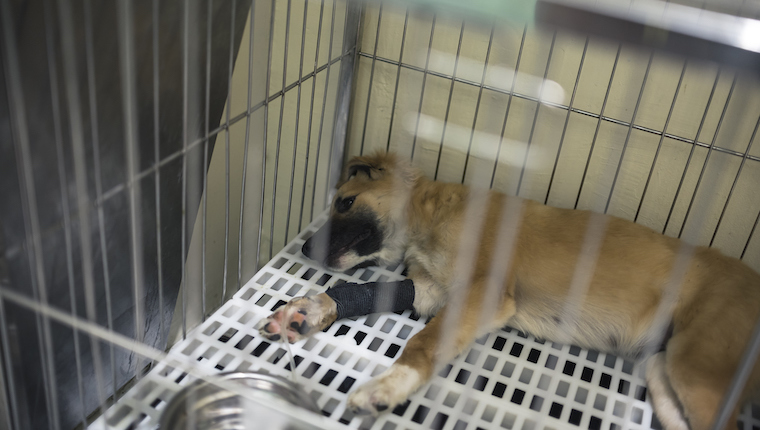Several dogs in northern Michigan have died because of a mysterious parvovirus-like illness, according to the Otsego County Animal Shelter.
The shelter posted on Facebook that the dogs, most of whom were under two years old, had symptoms consistent with parvovirus. However, when veterinarians tested the dogs for parvo, the tests came back negative.
“Most of these dogs have passed within three days. These dogs are mostly under the age of two. Some of the dogs were vaccinated,” shelter staff said in the post.
The shelter is working with veterinarians in nearby communities and has contacted the State Veterinarian and Michigan Department of Agriculture and Rural Development. Additionally, the Michigan State University Veterinary Diagnostic Laboratory in Lansing performed a necropsy. However, it’s still unclear what the illness is and where it came from.
“No one has an answer. The best ‘guess’ is that this is a strain of parvo,” the animal shelter said, according to local news outlet WNEM.
What Is Parvovirus?
Parvovirus is a highly contagious gastrointestinal illness. According to the Michigan Humane Society, it can live for months or years on a surface. While it’s shed and deposited through infected dogs’ feces, it can also transfer through toys, bowls, bedding, hands, and shoes. Puppies and young dogs are most at-risk. Certain breeds, such as Pit Bulls, Dobermans, and Rottweilers, are also more susceptible.
Symptoms usually arise five to 11 days after infection and include sudden loss of appetite, vomiting, and diarrhea (often bloody). Some dogs develop a fever, and many become dehydrated. Puppies ages four to eight weeks may have no symptoms before dying suddenly from heart inflammation.
How to Protect Your Pup
Although most of the sick dogs have been in Otsego County, the shelter has also received reports of affected pups in Vanderbilt, City of Gaylord, west of Gaylord and south of Gaylord.
Shelter officials say the best way to protect your pet is to ensure they are fully vaccinated. If your dog does develop any symptoms, take them to the veterinarian immediately.









